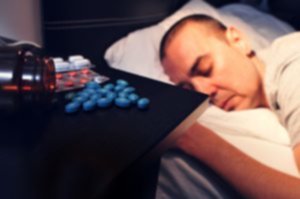Drug Overdoses: Risks, Signs, What to Do if It Happens

What to Do When Someone You know or Love Overdoses on Drugs
Drug overdoses are a serious and often fatal outcome of drug use. According to the Centers for Disease Control (CDC), accidental drug overdoses are the leading cause of injury-related deaths in the United States. Data also shows that in 2014, more people died as a result of an opioid drug overdose than any other year recorded.
Overdose events can be brought on by a number of different drugs, both prescription and illicit drugs used to get high. An overdose brought on by prescription medication occurs when the person’s body is not accustomed to the dose, when the dosage is increased or when the body rejects the medication because it perceives it as a toxin. An illicit drug overdose is usually the result of an exposure to dangerous and high levels of foreign chemicals and other toxic substances, which result in poisoning.
A drug overdose may be a sign of a substance abuse or addiction problem, prompting the need for treatment at a certified rehab facility such as WhiteSands Treatment Center. With the help of medically licensed professionals, you or your loved one will be able to learn new and effective coping skills, and prevent future drug overdoses.
Risks
The risk of an overdose becomes higher when someone takes a medication they are not prescribed or abuses an illicit drug. It can be caused by an accidental overuse and/or misuse of prescription medication and illegal drugs. Risks of an overdose include:
- Medication that is not properly stored or disposed and is easily accessible to teenager or adults who abuse these drugs
- Mistakenly taking the wrong dosage of medication or purposely increasing the dosage to mitigate pain or discomfort
- Mixing prescription medications with other prescription drugs, illicit drugs or alcohol to get a more intense high
- Abusing illegal drugs such as heroin, cocaine, meth, etc. can also lead to an accidental drug overdose.
Teenagers and adults are more likely to suffer an overdose in an attempt to increase their high or to harm themselves. Those who overdose on illegal drugs or medications on a frequent basis most likely suffer from addiction and possibly some underlying mental health conditions. This constant overdosing is a sign of a much more serious health condition that requires intensive inpatient rehab treatment. Certified and licensed facilities like WhiteSands Treatment Center are deigned to help people suffering from addiction address the underlying causes of their disease and manage their triggers through more effective coping techniques.
Signs
Signs of a drug overdose vary depending on the type of drug ingested and the dosage taken. While a large dose of one drug can do little to no harm, a small quantity of another drug can cause serious health effects, and even death.
Some people have reported the following symptoms when experiencing an overdose:
- Increase or decrease in temperature, heart rate, blood pressure and respiratory rate
- Confusion
- Sleepiness
- Nausea
- Stomach pain
- Shallow breathing
- Diarrhea
- Vomiting
- Seizures
- Coma
What to Do if It Happens
If you or someone you love is lucky to survive one or more accidental drug overdoses, the next important step is to find a high quality, effective, inpatient drug treatment rehab center. At WhiteSands Treatment Center, patients receive 24 hour clinical care and supervision as they go through the phases of treatment. Through certified detox programs, evidence-based therapies and relapse prevention, you can learn how to manage your triggers and enjoy life-long sobriety.
For more information about treatment programs, dial (877) 855-3470.